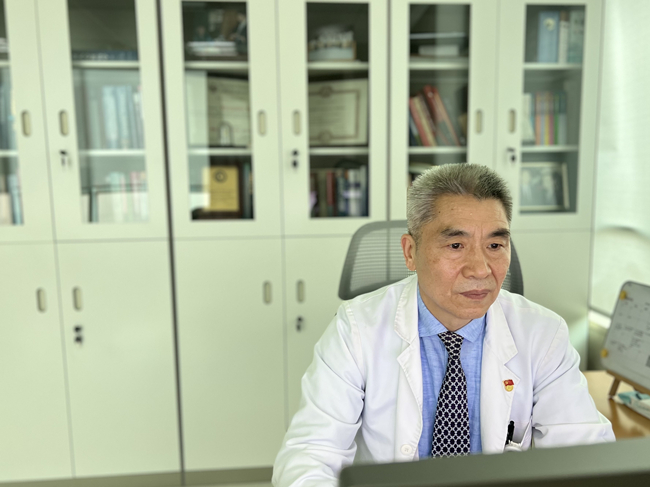Academician Hu Shengshou Lectured on Xenotransplantation
On April 29, Prof. Hu Shengshou, academician of the Chinese Academy of Engineering and expert in cardiovascular surgery, was invited to give the 7th lecture of "Medical Frontiers and Challenges", a general elective course launched by Nankai University. Prof. Hu's lecture was entitled "how far xenotransplantation is from the clinical application—scientific questions we have to answer". Professor Cao Xuetao, President of Nankai University, presided over the lecture

Prof. Hu introduced the cutting-edge topic of xenotransplantation by taking the example of the world's first human transplantation of transgenic pig heart in the 21st century conducted by University of Maryland Medical Center (UMMC). He said that organ transplantation is one of the most significant advances in the medical field in the 20th century, which has brought hope to numerous patients with end-stage organ failure and saved thousands of lives. "However, the severe shortage of organ donors remains a global problem. For example, usually a donor of heart is probably being waited by 30-50 patients".
Hu pointed out that, due to the extreme shortage of homologous donors, people began to shift focus onto three new sources - xenotransplantation, tissue engineering and artificial heart. Among them, xenotransplantation is currently accepted by the academic community as the main solution and the "next medical revolution" that may arise in the 21st century.
By talking about the enlightenment of human's initial thought of xenotransplantation, the early exploration of xenotransplantation, and cases of early xenotransplantation of human beings, Hu introduced the history of xenotransplantation technology in detail and expounded that the difficulties in preclinical breakthrough of xenotransplantation for years are existing problems such as immune rejection and abnormal blood coagulation.
Hu said that, in recent years, the optimization of donor selection for xenotransplantation and the rapid development of gene editing technology have rekindled the hope of xenotransplantation in the medical community, thus the world's first surgery of transgenic pig heart transplantation was implemented. But unfortunately, the patient died two months after the transplantation. "In addition to the sensational effect, this transplantation surgery has triggered our thinking: What leads to the death of the patient after transplantation? Has the era of clinical application of xenotransplantation really come? What are the scientific questions that must be answered to achieve xenotransplantation?" Hu said.
Combining these questions, Hu explained to the students the roles of such factors as xenogeneic immune rejection and cardiac hemodynamics in xenotransplantation through previous scientific experiments.
In the end, Hu emphasized that although a large number of animal experiments have been completed and the exploration of human experiments has started, there are still many problems in xenotransplantation and there is a long way to go before clinical application. "As the Goldbach conjecture, xenotransplantation still call for countless clinical and basic scientific studies to blaze the trail".
(Edited and translated by Nankai News Team)









